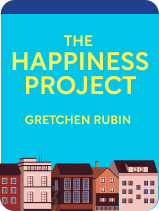

This article is an excerpt from the Shortform book guide to "The Happiness Project" by Gretchen Rubin. Shortform has the world's best summaries and analyses of books you should be reading.
Like this article? Sign up for a free trial here .
Do you feel like you could do with more fun in your life? What activities do you find fun anyway? Can you think of ways you could have more fun?
In our busy, ambitious lives, it’s easy to either forget about play completely or only engage in play that feels productive in some way. While it’s great to combine productivity and leisure, it’s also important to have more purse fun. That means doing activities because you want to do them—not because of their “productive” factor, money-making potential, or prestige.
In this article, we’ll focus first on seeking more pure fun, and then we’ll explore the ways you can have more fun in your everyday life.
What Do You Find Fun Anyway?
Before we explore how you can have more fun, it’s important to figure out what you find fun in the first place. It’s very possible that you’re not sure how you have fun—many people go through life participating in activities that they think they should enjoy instead of activities they actually enjoy. We do this with the goal of projecting a certain image of ourselves, and it’s an easy way to get sucked into activities that don’t feel good or right for us.
There are three parts to creating more opportunities for genuine fun.
- First, run through the ways you seek fun in your everyday life. For each activity, ask yourself: Do I look forward to doing this activity? Does it make me feel energized or drained? These questions will help you separate activities you truly enjoy from activities you’re doing simply because you feel that you should.
- Second, think of new ways to have fun. If you’re having trouble coming up with ideas, try writing down the ways you remember having fun as a child. It’s likely that what was fun for you at a time when productivity wasn’t a concern will still be fun for you now.
- Third, embrace your idea of fun and announce it to others. When you talk about your interests, you’re more likely to connect with like-minded people than if you kept your interests to yourself. An added benefit of talking openly about your interests is that you find “your people.” Research shows that each common interest you have with a person not only increases your chances of having a lasting relationship with them but also boosts your overall life satisfaction by 2%. Furthermore, the feeling of belonging to a group bolsters your confidence and your happiness.
Making Time for Fun
Fun activities often aren’t spontaneous—book clubs don’t just happen. To have more fun, actively work on making time for it.
A commitment to fun is important to keep in mind because it’s easy to put off leisure activities in favor of productive activity, such as working, spending time with your family, or taking care of the house. However, dedicating time to leisure gives you the energy to bring your best self to the things you “should” do. On the other hand, working nonstop and only doing productive activities will make you feel burned out, resentful, or too tired to fully engage.
Accept Your Limits
One of the toughest parts of identifying your fun is accepting that you can’t do everything, and you won’t naturally be interested in everything you wish you were interested in. Grappling with this idea can be hard and discouraging. But, the good news is, once you clear this “aspirational clutter” from your mind, you create space for the things you truly care about and want to engage in wholeheartedly.
Look Outside Your Regular Channels
A good way to expand the limits of your leisure is to actively look for new experiences, new ways of thinking, new places, and new connections—all of which may lead you to a new hobby you hadn’t considered, and force you to focus on experimentation and failing. Try these two methods to force a change of perspective.
- Keep an interesting log where you write down everything that captures your interest. Then you can use this information to go on research tangents or look into new activities. You might find your own method such as collecting free maps where you can mark points of interest, or snapping photos of things you want to look into later.
- Purposely encounter unfamiliar information. You might do this by reading sections of the newspaper you usually skip, listening to new podcasts, or looking up at buildings instead of at the ground when you’re walking around.
Put Fun Into Small Moments
It’s also important to bring fun into the small moments that make up your days. There are two ways to commit yourself to “small fun.”
Allow Time for Goofiness
Many people, consciously or unconsciously, shut down goofiness when they’re trying to get things done efficiently—even when there’s no time pressure or reason to be efficient. This happens at all points of the day, such as bathtime, when you’re cleaning up the house, or Saturday morning breakfast. When you find yourself shutting down play in the interest of unnecessary efficiency, adjust your attitude by asking yourself two questions.
- Does this need to be done now?
- Can we spare a couple of moments to be goofy?
This exercise prevents you from unnecessary nagging and arguing. And, it boosts everyone’s mood due to “emotional contagion”—the way we subconsciously pick up on one another’s moods. When you’re goofy instead of frustrated or hurried, others will mirror your good mood—compounding everyone’s happiness.
Add Purpose to Play
Adding a small sense of purpose to a leisure activity can help you commit more of your time and attention to it. For example, you might take up architecture drawing, dedicate yourself to finding your city’s best pizza, or try out breweries within biking distance.
Beyond adding a new way to have more fun in your life, these missions take you to new places and help refresh your mind, which can recharge you for large, mentally draining tasks. In this sense, simply having fun can actually boost your productivity.

———End of Preview———
Like what you just read? Read the rest of the world's best book summary and analysis of Gretchen Rubin's "The Happiness Project" at Shortform .
Here's what you'll find in our full The Happiness Project summary :
- How to increase the overall happiness in your daily life
- Why changing everything won't bring you happiness
- How to create your own year-long happiness project






